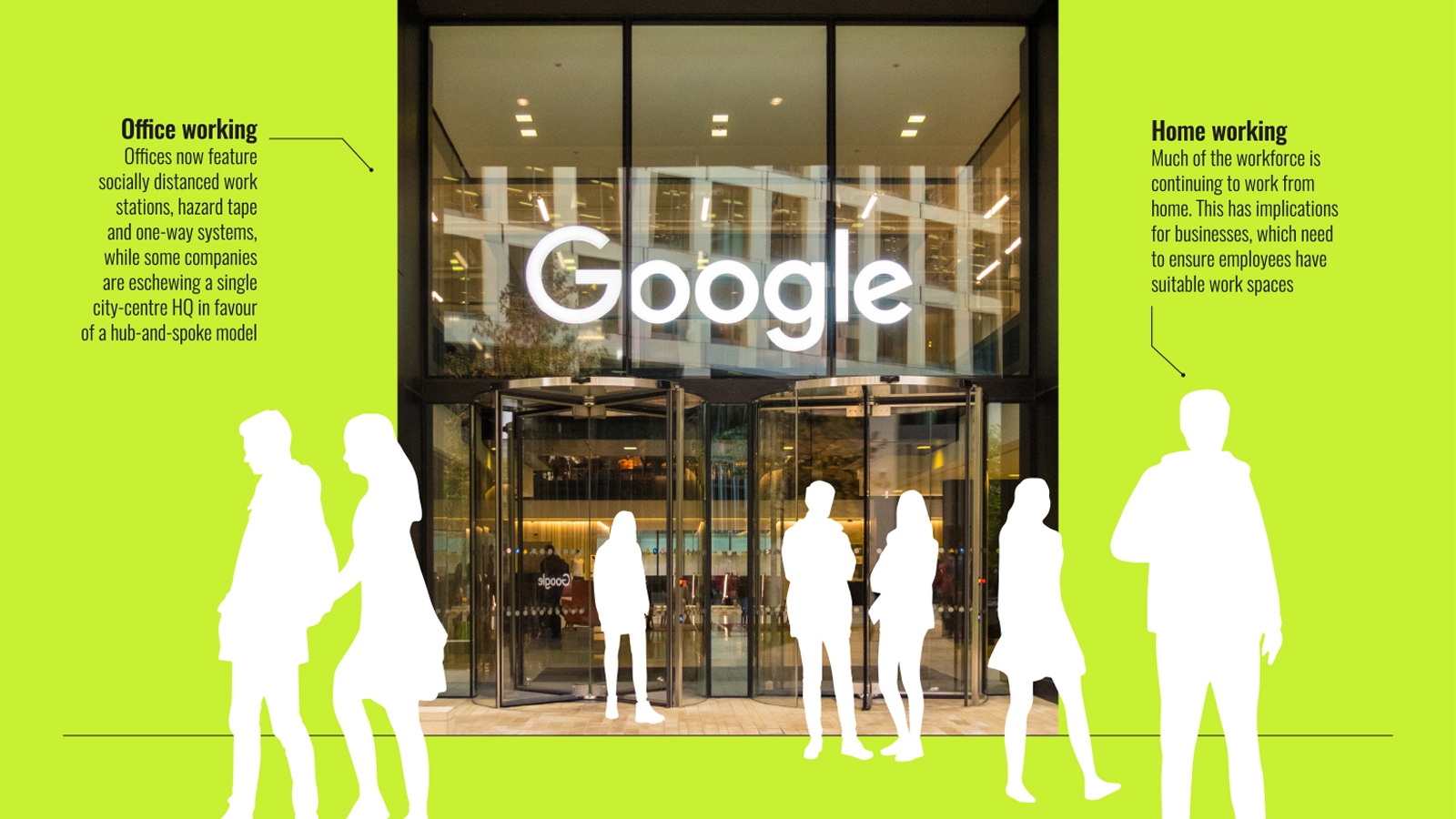
Google’s office in King’s Cross, London, could stay empty until summer 2021
Since lockdown restrictions on travel were eased in many parts of the world, there remains a reluctance, whether on the part of the employer or their staff, to return to the office, which has massive implications for the scope of facilities managers’ work.
Twitter set its stall out early, telling its staff in May they can work from home forever if they wish. Google stated its workforce will be home-based until next summer, and Barclays CEO Jes Staley was widely reported in April as saying that “the notion of putting 7,000 people in the building may be a thing of the past”.
According to data from AlphaWise, the research arm of US bank Morgan Stanley, just over half of UK office workers have returned to their usual workplace. Meanwhile, in Singapore, statistics from market research firm Qualtrics show that 59% of workers were uncomfortable going back to the office when surveyed in June.
Is anyone sitting comfortably?
If homeworking is now mainstream, does that mean FMs have responsibility for millions of people’s kitchen tables, back bedrooms and home offices? “Ergonomic assessments of people’s homes feel a bit intrusive in the short term. However, given fluctuations on a daily basis it would be irresponsible to ignore the plight of the 60% of global employees who do not have a dedicated setting in their homes to work from, especially if workforces are expected to work solely from home for another lengthy period of time.” says Tim Oldman, founder and CEO of Leesman, which found that 63.6% of those questioned in its global homeworking survey were satisfied with their desk or table and only 56.5% with their chair. "Organisations need to know what's going on and, importantly, how their employees are supported from home."
“FMs are suddenly having to exercise their soft skills here, which is really hard for their mindset, as previously they’ve been expected to excel in more mechanical, infrastructure and computational areas.”
Oldman also sees a possibility for entrepreneurial furniture manufacturers to offer sales-as-a-service monthly packages to make sure employees’ homeworking environments are ergonomically suitable. This, while offloading some of the burden from FMs, would have cost implications.
At construction consultant Arcadis, which has more than 350 offices worldwide, FMs have been working with HR and health-and-safety teams to conduct virtual DSE (display screen equipment) assessments to make people more comfortable working from home.
“FMs are suddenly having to exercise their soft skills here, which is really hard for their mindset” Tim Oldman, Leesman
Re-opening for business
As it begins to re-open its offices, Stephen Shallcroft FRICS, Arcadis’ director of corporate real estate, says: “We’ve been sharing lessons from our Asia offices. For example, how you can start to use lifts again safely.” FMs’ roles at Arcadis have evolved over the past few months, from working with the procurement department to make sure everyone has the right kit for homeworking, to maintaining compliance for unoccupied buildings and ordering enough hand sanitiser, screens and hazard tape to prepare the buildings for re-opening.
Arcadis already had a desktop portal for booking workstations and, much like in the hospitality and retail environments, QR codes have come into their own in terms of office sign-ins. Not only are they user-friendly but they don’t cost anything, so they represent a quick win. The firm is also harnessing technology for digitising its waste recording.
Out-of-town offices
Much has been made of the hub-and-spoke model. Jeremy Myerson, director of the Worktech Academy, speaking at a British Council for Offices (BCO) webinar held in association with architects Arney Fender Katsalidis, gives some context, “Rather than the traditional 20th-century model of the central business district, I think travel to city centre locations will be more sporadic and for event-based activities such as training, while the idea of companies having local satellite and suburban offices could become more of a reality. So it becomes a multi-nodal approach to work.”
If this is the case, then FMs will have to work more closely with their own corporate real estate teams, and also with external stakeholders such as landlords and building managers.
When attitudes to working locations keep shifting (Staley subsequently told Bloomberg TV in July that it was “important to get people back together in physical concentrations”) FMs have to be prepared for all eventualities, whether that’s homeworking, a return to the office, hub-and-spoke or a combination of all three. As Kathryn Sims, Arcadis’ regional facilities manager puts it, “Things that need to be done now have led FMs to be a lot more inventive and creative.”
“The idea of companies having local satellite and suburban offices could become more of a reality” Jeremy Myerson, Worktech Academy
